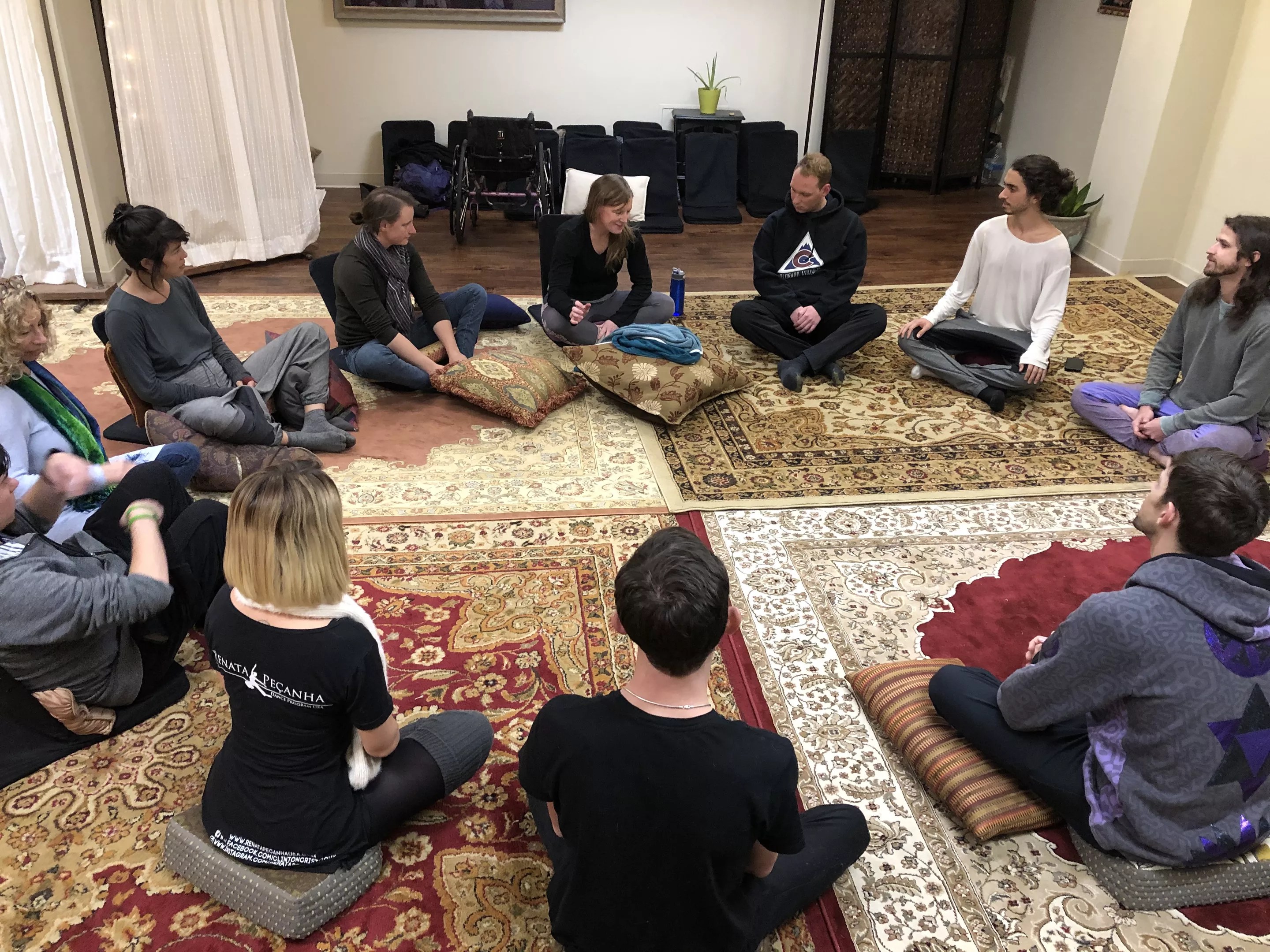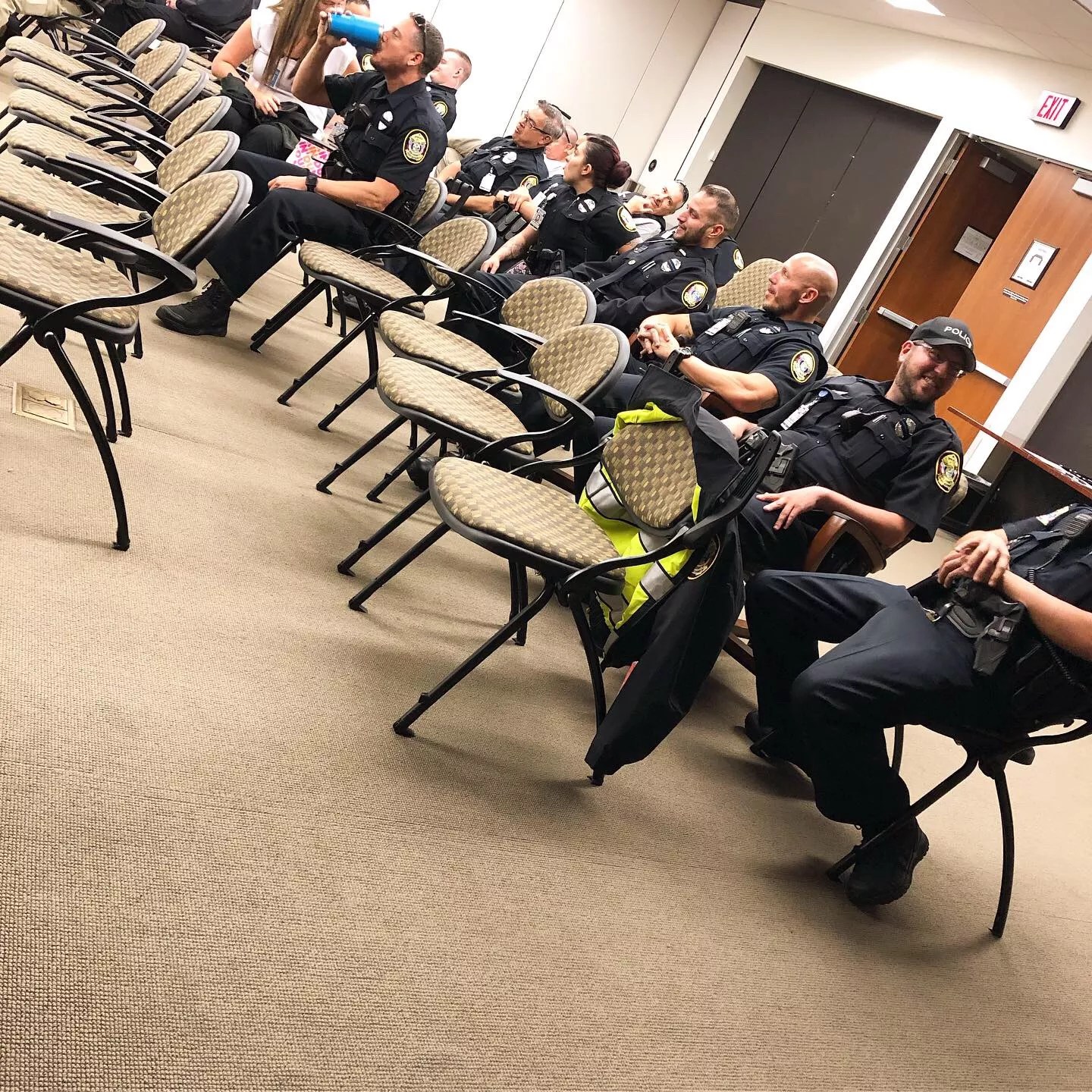
NeuroSculpting Institute

Audio By Carbonatix
Lisa Wimberger is an expert on stress: She teaches people, from police officers to first responders to those living with chronic illnesses, how to manage it. And she has some insight for everyone who’s feeling some stress as a result of coronavirus – in other words, all of us.
“Right now we’re in a compounding situation, which does not have an end target or end date in sight,” she explains. “In general, when the body goes through a stress event, the event usually ends, and then the body has an opportunity to regulate once again and heal.”
If we don’t have an end in sight, however, our bodies don’t get that opportunity, and our brains never stop responding to stress…and then this state becomes a new baseline “normal” for us. “When we are in an ongoing hyper-vigilant stress response, we are compounding the load the nervous system has to carry,” Wimberger notes. “And once that happens, we become chronically engaged, which is not sustainable for the brain or body.”
And when everyone in the city, county, state, country and world is experiencing compounding stress? We could all be giving ourselves compound post-traumatic stress disorder (PTSD), which would have repercussions far into the future. But Wimberger has advice on how to avoid that.
Will you step up to support Westword this year?
At Westword, we’re small and scrappy — and we make the most of every dollar from our supporters. Right now, we’re $20,500 away from reaching our December 31 goal of $50,000. If you’ve ever learned something new, stayed informed, or felt more connected because of Westword, now’s the time to give back.
“Getting education on the full spectrum of the stress response is step one,” she explains. “Then that awareness needs to move into mental and physiological practice to bring ourselves as close to homeostasis as possible,” back to the body’s normal state of calm.

Police officers preparing to take a NeuroSculpting class.
NeuroSculpting Institute
There are a number of practices that you can use to heal the body: shaking, gargling, humming, singing, exercise, nutrition, sleep or meditation, including the techniques that Wimberger developed and teaches through the NeuroSculpting Institute (NSI), which she founded in 2012. (Westword wrote about Wimberger’s previous business, Trance Personnel Consulting Group, in 2011.) She’s taught NeuroSculpting techniques to more than 3,000 police officers and created a certification program with sixty facilitators across the United States and Australia. She’s also written seven books, recorded dozens of audio-meditation journeys, and will be launching an app this month, NeuroPraxis, to help people living with the results of chronic illness, PTSD and biotoxin exposure. (The first tier of NeuroPraxis content is currently free and available at patreon.com/neuropraxis.)
“I’m still putting energy into the work with first responders, and that alone could be a full-time job,” Wimberger notes. “And then the NSI is there for the general population suffering from stress disorders.”
Wimberger has been certifying NeuroSculpting instructors since 2013; the certification program gave her the ability to share the techniques she’s refined in a controlled way. “The certification program was not something I initially strategized,” she acknowledges. “My most advanced students came to me and said, ‘I need to share this; it’s changed my life so much,’ and I realized I had to prepare them to share it, and share it well, with integrity and standards, and a lot of education and practice.” The program includes professional development training as well as private forums for conversations and support.
On her NSI website, Wimberger offers information such as free ebooks, plus access to her wellness and certification classes, hosted both in person in her Denver studio and online. With the advent of the pandemic, she’s also started offering free meditation tools and resources (including a seven-day meditation series) on her website and Facebook page.
The core NeuroSculpting meditation is a guided visualization during which you picture energy and stress moving around and through your body in different ways. Those familiar with guided visualization will recognize the exercises for grounding, creating a neutral space and defining personal boundaries:
- Grounding: Visualize a cord leading from your body to the center of the earth, and send any unwanted energy or stress down the cord to be absorbed and recycled. You can change the color or texture of the cord, add a date to it, and even include an on-off switch.
- Creating a neutral space: Picture yourself somewhere you feel automatically and completely comfortable. It should be free of any judgments and constraints.
- Defining personal boundaries: See a bubble or sphere surrounding your body. You can change its texture or color, but make sure there are no holes in it, and that you’re also eliminating this area of any stress or unwanted energy.
The final exercise is one Wimberger calls “Gold Sun”: After you’ve emptied your body and the space around you, picture an enormous golden sun hovering over your head that contains grace, patience, creativity or whatever you feel you need most right now. Visualize it spilling into you through the crown of your head and filling your body, then the sphere around you, with this new energy.
Wimberger is hopeful that the techniques she’s been honing for decades, which she credits with saving her own life, can help change how we react to mass crises like the one we’re currently navigating.
“The pandemic itself does not need to result in a global PTSD if we start taking action now in the areas we have complete control over, which is our inner landscape,” she says. “We can come out of the pandemic with a new kind of social engagement that is healthy for the mind and body – proactive, solution-oriented, and positioning each of us for our highest state of health and well-being.”